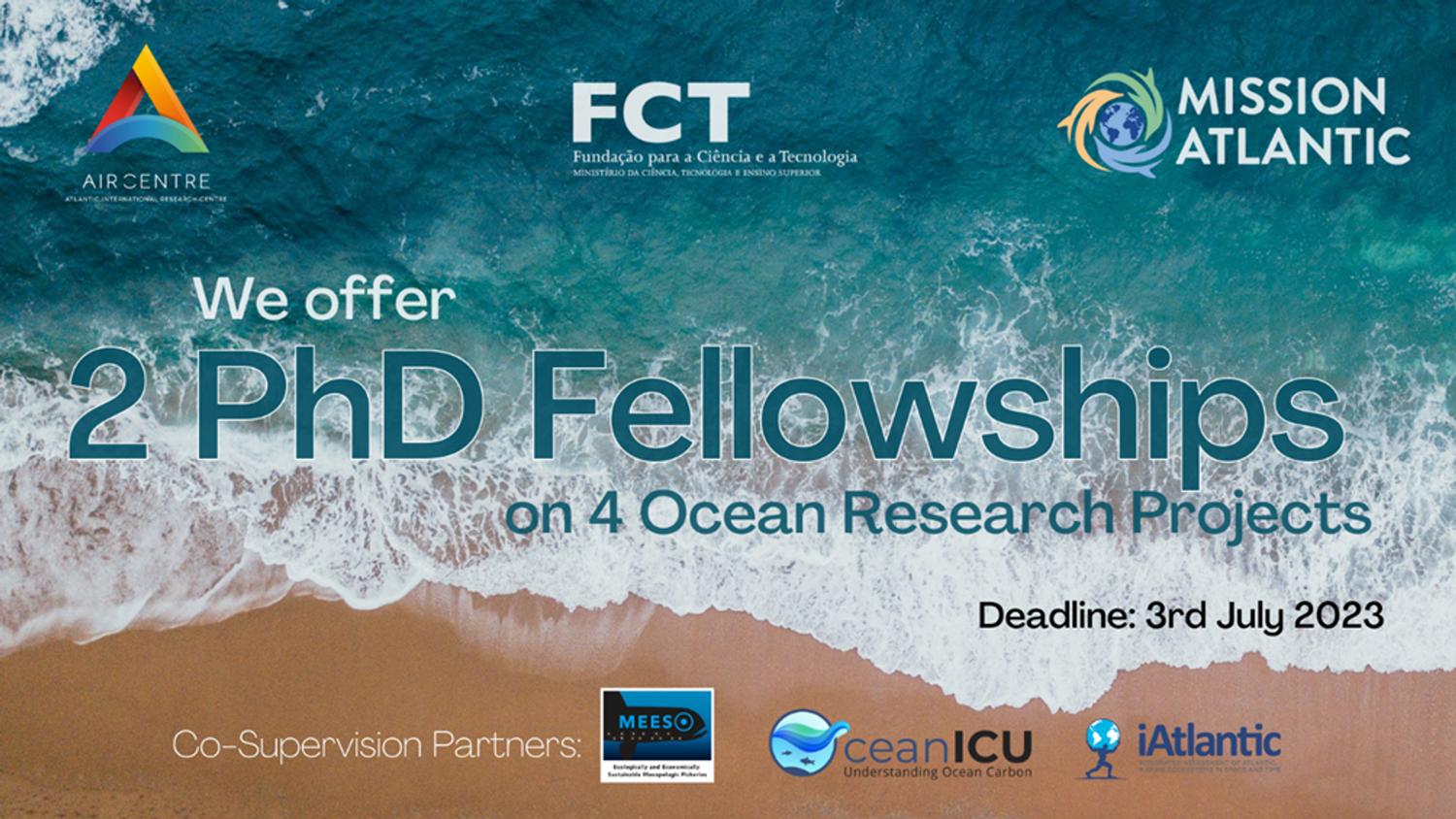2 international PhD scholarships will be provided from a set of 4 themes within marine ecosystems.
The themes are:
- The importance of the twilight zone for endangered oceanic filter-feeding elasmobranchs: this PhD project proposes to evaluate the importance of mesopelagic resources oceanic elasmobranchs in the Atlantic Ocean, in particular the endangered and least known filter-feeder species (whale shark, devil rays), using a multidisciplinary/multiscale approach.
- Machine learning approaches for the analysis of marine ecosystem indicators for present and future scenarios: this PhD project proposes to 1) develop machine learning algorithms to process data sets and identify patterns, trends, and relationships that may not be immediately apparent to human analysts; 2) advance neural network approaches to improve the accuracy of ecosystem indicators through data assimilation techniques able to handle the varying levels of accuracy and uncertainty; (3) identify novel indicators or refine existing ones for coastal and marine ecosystem management.
- Incorporating ecosystem service considerations into integrated ecosystem assessments using a functional trait-based approach: this PhD project will build on the IEA approach, by conducting research that 1) considers the linkages between species, their response and effects traits, ecosystem services and vulnerabilities to human induced pressures, and 2) links between spatially mappable ecosystems, their services and vulnerabilities.
- Past, present, and future of coastal fish communities in the oceanic archipelagoes of the Atlantic Ocean: this PhD aims to conduct a pan-Atlantic assessment into the past, present and future state of coastal rocky reef ecosystems in Atlantic oceanic archipelagos. The focus will be on the Azores archipelago but will also address other regions spread along a latitudinal and impact gradient, including Macaronesia (Azores, Madeira, the Canary Islands, Cabo Verde), and south Atlantic archipelagos (St Helena, Ascension, São Tomé and Principe) at various scales.
The grants are financed by the Portuguese National Foundation for Science and Technology (FCT) under the Collaboration Protocol signed between FCT and the AIR Centre and framed in the EC HORIZON 2020/EUROPE projects Mission Atlantic 2020-2025; and Horizon EU OceanICU with the support of PIs from international consortia.
For more information, contact scholarships@aircentre.org.
